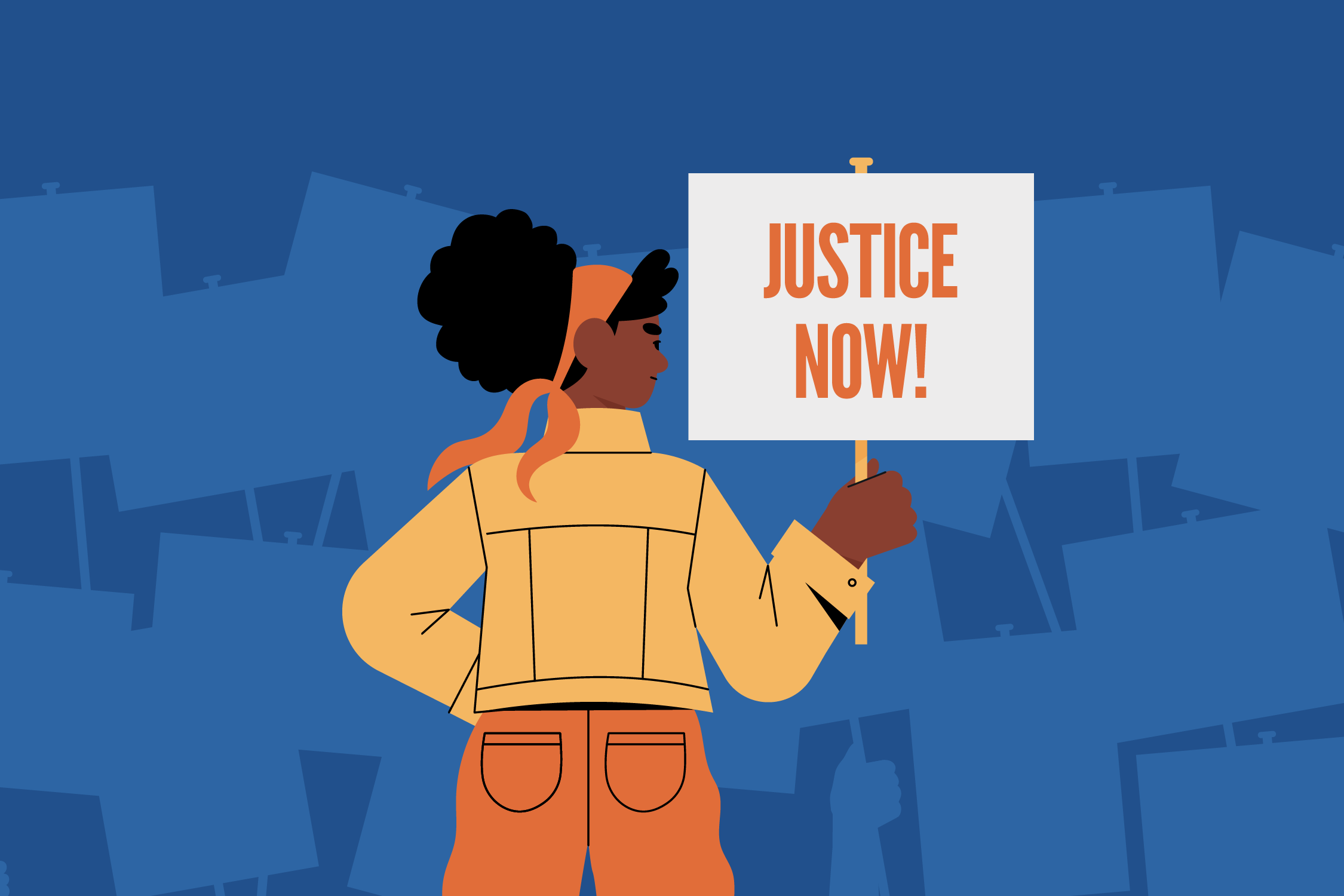What is Racial Equity? Learn the Racial Equity Definition with Examples
Jan 07, 2022

In 2020, the United States not only faced a pandemic sweeping from coast to coast, but had a social justice reckoning that once again proved what many already knew to be true: American citizens are far from equal. The discussion surrounding race and racial equity is an important one and is a topic that everyone should be educated on. But, what is racial equity? What does racial equity mean? And what does it look like in real life? Below, we break down the racial equity definition and how community members can implement it into every aspect of their daily lives.
What is Racial Equity?
Racial equity, according to the organization Race Forward, is the process of eliminating racial disparities and improving outcomes for everyone. It is the intentional and continual practice of changing policies, practices, systems and structures by prioritizing measurable change in the lives of people of color.
Everyone benefits when racial equity is upheld, regardless of the race of the person, because when equity is in the center of community life, citizens are allocated the resources and opportunities they need to create equal outcomes for all community members to thrive.
Definition & Examples of Racial Inequity
Although racial inequity is the opposite of racial equity, it is not that simple. According to the Race & Social Justice Initiative, there are three main types of racial inequity: structural, institutional and individual. To fully address the impacts of racism, it is important to understand and address all aspects of racial inequity:
- Structural racial inequity: The interplay of policies, practices and programs of differing institutions, which leads to adverse outcomes and conditions for communities of color compared to white communities that occurs within the context of racialized historical and cultural conditions. Structural racism refers to wider political and social disadvantages within society, such as higher rates of poverty for Black people or higher rates of death from COVID-19 among people of color compared to whites.
- Institutional racial inequity: Policies, practice and procedures that work to the benefit of white people and the detriment of people of color, usually unintentionally or inadvertently. Institutional racism relates to, for example, the institutions of education, criminal justice and health. Examples of institutional racism include things like stop-and-search frisk policies by police/governments that target people of color.
- Individual /Interpersonal racial inequity: Pre-judgment, bias, stereotypes or generalizations about an individual or group based on race. Individual racism relates to how a person perceives others around them, often in unfair and unjust ways.
What is the Difference between Racial Equity and Racial Equality?
Although racial equity and racial equality sound the same, the outcomes of each are vastly different. Here is what to know about racial equity vs. equality:
Racial equity is achieved when race no longer factors into or determines one’s socioeconomic outcomes. It is when everyone has what they need to thrive, no matter where they live or how they identify. Equity is different from equality. Equality serves everyone the same, regardless of need. Equity, on the other hand, achieves fairness by meeting people where they are and serving them differently depending on their needs to achieve equitable outcomes.
Though the ultimate goal of racial equity may be equality, the route to achieving equity cannot be accomplished simply through treating everyone equally. It is achieved by “treating everyone equitably or justly according to their circumstances.”
Racial Equity Examples’
Now that you understand the racial equity definition, you’re probably wondering, “what is racial justice in real life?” Below is a look at the racial justice definition in real-life examples.
- In education: Affirmative action opponents often favor “race-neutral” admissions policies, which do not explicitly consider race. But, in the face of persistent structural inequality, such policies are anything but neutral and give non-people of color an unfair advantage. Consideration of all aspects of a student’s background for admission—including race—is critical to becoming a more equitable society.
- In the workplace: What is racial justice in the workplace? It goes beyond required diversity, equity and inclusion training. To create a more equitable workplace, companies must identify problem areas, give an equal voice to BIPOC employees and allow them to feel heard, and help educate white employees about problems they may not believe exist. When race and issues surrounding it are met head on in the workplace—no matter how uncomfortable—all employees are able to learn, embrace differences and thrive.
Embracing racial equity is important and necessary in order to create a more equitable and just future for all. But, how does one advance racial justice in their daily lives? Start with the racial equity framework we’ve listed below.
Racial Equity Framework
How can you join the movement to begin advancing racial equity? First, know the framework: normalize, organize and operationalize.
- Normalize racial equity by discussing it often and with urgency. According to Race Forward, “while it is often believed that change is hard and takes time, we have seen repeatedly that when we prioritize change and act with urgency, change is embraced and can occur quickly. The most effective path to accountability comes by creating clear action plans with built-in institutional accountability mechanisms. Collectively, we must create greater urgency and public will in order to achieve racial equity.”
- Be a part of organizational capacity. While the leadership of elected and top officials is critical, change takes place on the ground, and it is necessary to build infrastructure that creates racial equity experts throughout the community. Join an equitable affinity group, volunteer with equity-focused organizations and advocate for equity by giving voice to racial inequity. And, continue educating yourself. A good place to start is by signing up for United Way NCA’s 21 Day Race Equity Challenge.
- Operationalize by implementing racial equity tools. An example is GARE’s Racial Equity Tool, which facilitates the integration of racial equity into routine decision-making.
In conclusion, the issues of racial inequity are not going to be solved overnight, but when we come together as a community to face them head on, we can create a more equitable future for all community members. When none are ignored, all will thrive. Join the movement and begin practicing equity today!
About the author: Holly Martinez works as the manager of digital marketing & fundraising at United Way of the National Capital Area and has almost a decade of journalism experience. Her favorite part of her job is finding new and fun ways to promote United Way NCA’s important equity work. In her free time, she enjoys reading, spending time with her dog, hiking and traveling.


